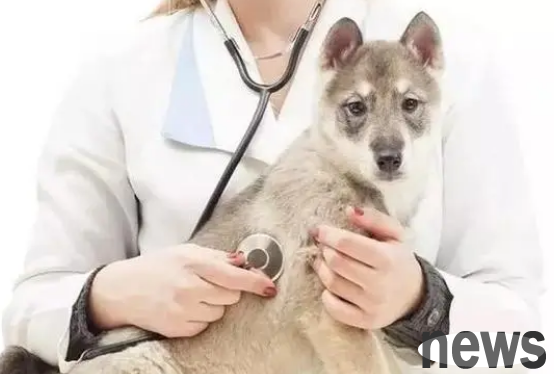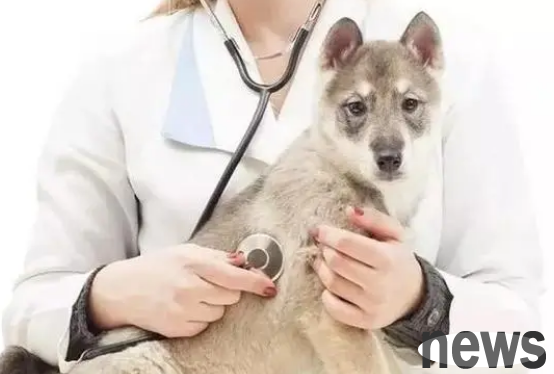Causes of common diarrhea in dogs and cats and their prevention and treatment plans
Diarrhea
Diarrhea refers to the fact that the feces excreted by animals are higher than normal, and are accompanied by the increase in feces excretion frequency, feces fluidity or volume. A British questionnaire showed that 14.9% of the dogs surveyed showed that they had diarrhea in the past two weeks. Among the dogs who went to veterinary hospitals, 28.6% of the dogs had diarrhea, and 2.2% of the dogs came to the hospital due to diarrhea. Classification of diarrhea
Diarrhea can be divided into acute diarrhea and chronic diarrhea (lasting for more than 3-4 weeks), and can be divided into small intestinal diarrhea and large intestinal diarrhea according to the location. According to whether it is infected, it is divided into infectious diarrhea and non-infectious diarrhea.

Acute diarrhea
Food intolerance, sudden changes in food, virus, bacteria and parasite infections, hemorrhagic gastroenteritis, intussusception, stress syndrome, poisoning, acute pancreatitis and adrenocortical hypofunction, etc.
Chronic diarrhea
Food intolerance, parasites, inflammatory bowel disease, antibiotic-reactive bowel disease, pancreatic exocrine deficiency.
Infectious diarrhea
Diarrhea caused by intestinal infections of various pathogens, mainly including viruses, bacteria, parasites and fungi.
Characteristics: Infectious diarrhea such as viruses and bacteria often has symptoms of fever and often vomiting and monetization. Bacterial diarrhea, mucus, or even pus and blood-like substances are often seen in the stool, and the amount of defecation is not large at each time; viral diarrhea is often dilute water-like stool, which is large at each time, which is prone to dehydration.
Non-infectious diarrhea
Diarrhea caused by no pathogens is the main types of diarrhea such as increased intestinal osmotic pressure, digestive and absorption disorders, abnormal intestinal peristalsis and abnormal intestinal secretion.
Features: Non-infectious diarrhea is often a foodborne factor, indigestion, primitive food particles in the stool, without fever, and occasionally vomiting.
Treatment of diarrhea - Symptomatic treatment
For diarrhea, the key point of symptomatic treatment is to establish a new balance of body fluids, electrolytes and acid-base. Usually, animals with moderate to severe diarrhea need intravenous infusion. When too much feces are discharged and it is difficult to maintain the balance of body fluids and electrolytes, antidiarrhea drugs can be used. Severe enteritis usually causes vomiting, and central antiemetic drugs are more effective than peripheral antiemetic drugs. Treatment of
Diarrhea - For infectious diarrhea due to treatment
: Viral diarrhea: serum, albumin, monoclonal antibodies, etc.; bacterial diarrhea: antibiotic treatment; parasitic diarrhea: in vivo deworming drugs. Non-infectious diarrhea: Food intolerance diarrhea: Control diet, choose hypoallergenic foods, inflammatory bowel diseases: diseases such as insufficient pancreatic exocrine if given for several weeks. Treatment of diarrhea - Control Diet After diarrhea occurs, usually fast for 24-36 hours, and then food with high digestibility, small amount of soluble fiber and medium fat is given, eat less and feed more for 3-4 days.
Protein: In intestinal diseases, it is very necessary to use high-quality proteins. Protein is an important substance for the normal operation of the body. Especially for chronic small intestinal diseases (protein malabsorption and protein loss enteropathy), protein types should be carefully selected in food allergies cases.
Carbohydrates: In cases of small intestinal diarrhea, monosaccharides and disaccharides, especially lactose, should be avoided or reduced because they will increase the intestinal osmotic pressure. Rice is the best raw material because of its high digestibility, low osmotic pressure, and can promote the absorption of moisture and electrolytes.
Fat: It is the most complex type of nutrients that digest and absorb (mainly by pancreatic lipase and bile acid salts). Intake of appropriate fat has a positive impact on the treatment of diseases, such as omega-3 fatty acids.

Common antidiarrhea drugs
Drugs to control diarrhea. The effect of stopping diarrhea is achieved by reducing intestinal peristalsis or protecting the intestine from stimulation. It is suitable for severe diarrhea or long-term chronic diarrhea to prevent excessive dehydration of the body, imbalance of water and salt metabolism, digestive and nutritional disorders.
Change gastrointestinal movement: Enhance gastrointestinal tone, inhibit intestinal peristalsis, and stop propulsion contraction, thereby slowing down the speed of food propulsion and allowing water to be fully absorbed. Commonly used drugs include compound camphor tincture and atropine sulfate.
Adsorbent: It can absorb gases, bacteria, viruses and exotoxins in the intestine, preventing them from absorbing and damageing the intestinal mucosa, such as medicinal charcoal.
Astringent protective agent: It can form a protective film on the intestinal mucosa to prevent it from irritation, including tannin protein, bismuth carbonate, etc.
Basic bismuth carbonate tablets - Gastrointestinal mucosa protective agent for dogs - Vomiting and diarrhea: It is suitable for common gastrointestinal mucosa damage in dogs, such as bacterial, viral, replacement of dog food or food poisoning, and protects the gastrointestinal mucosa from damage. When taking drugs with high gastrointestinal tract irritation, they can be used in conjunction with them to reduce the damage to the gastrointestinal mucosa by the drugs. Suitable for symptoms such as indigestion in puppies.















